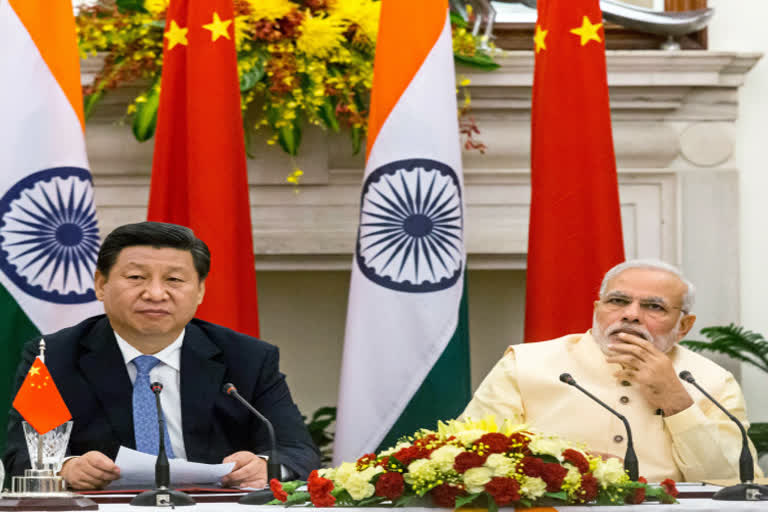Hyderabad: The India-China relationship has taken a new and dangerous turn within a fortnight of the 15 June border-dispute incident at the Galwan Valley along the Line of Actual Control (LAC). As expected, the political event has led to trade stand-offs, with India launching a multi-pronged business war against China.
On Wednesday, Union minister for road transport, highways and MSME, Nitin Gadkari, announced that Chinese companies will no longer be allowed to participate in Indian highway projects, including through the joint venture route.
“China will not be allowed to invest in India’s micro, small and medium enterprises sector; and imports from China will be discouraged,” he added.
On the same day, state-run telecom operator BSNL cancelled its 4G upgradation tender as the company had originally proposed Chinese equipment firm ZTE and Finnish communication giant Nokia as vendors. The move came after the telecom department decided earlier this month to exclude all Chinese equipment firms from participating in the tenders of state-run telecom firms.
And of course, earlier this week, in an unprecedented move, the government of India banned 59 Chinese apps, including the immensely popular video-sharing app TikTok, stating security and privacy concerns.
Harsh V. Pant, head of strategic studies programme at the Observer Research Foundation (ORF) in New Delhi, said: “These measures have been taken to show Indian displeasure at Chinese behaviour and to underscore the fact that India is willing bear certain costs in tackling China.”
But will China take note of the Indian policy response and factor it in while escalating any kind of geopolitical dispute with its Asian neighbour in the future? Pant doesn’t seem to think so. “I don’t think these measures will change China’s calculus, but they have (Indian government) certainly made it clear to China that India is not afraid of escalation if its demands are not met.”
Read more:JioMeet takes on Zoom, can support up to 100 participants
Also, India has parallelly started to prepare itself for the consequences of trade pushback against China. For the last couple of months, the government has been trying to strengthen the local MSME sector, probably anticipating the role it would have to play in the future economy-building exercises.
Prime Minister Narendra Modi, during one of his addresses to the nation during coronavirus-triggered lockdown, coined the term ‘Atmanirbhar Bharat’ -- setting goal for the country to become self-reliant. But it won’t be that easy.
China is one of India’s leading trade partners and constitutes 9% of India’s total export and 18% of total merchandise imports, commerce ministry data shows. Sectors like auto and pharma have already started raising concerns on the concept of self-reliance as it poses serious risks to their supply chain.
Moreover, there are concerns over consequence of what happens if China retaliates with similar trade restrictions. To put things in context, India sourced $3.5 billion of bulk drugs from China in 2019, which is 67% of the total pharmaceutical raw material imports, according to the ministry of commerce.
Senior journalist and political analyst Pratim Bose believes that India’s aim is not to cut trade ties with China completely. “Indian action is aimed at creating effective pressure on China to give up its expansionist strategies and be more transparent in approach, but not to snap economic relations.”
Bose added: “China would be careful because if India is dependent on China for imports of finished goods, China too is dependent on India for raw material. So, snapping or disrupting trade is of no one’s interest.”
(ETV Bharat Report)



